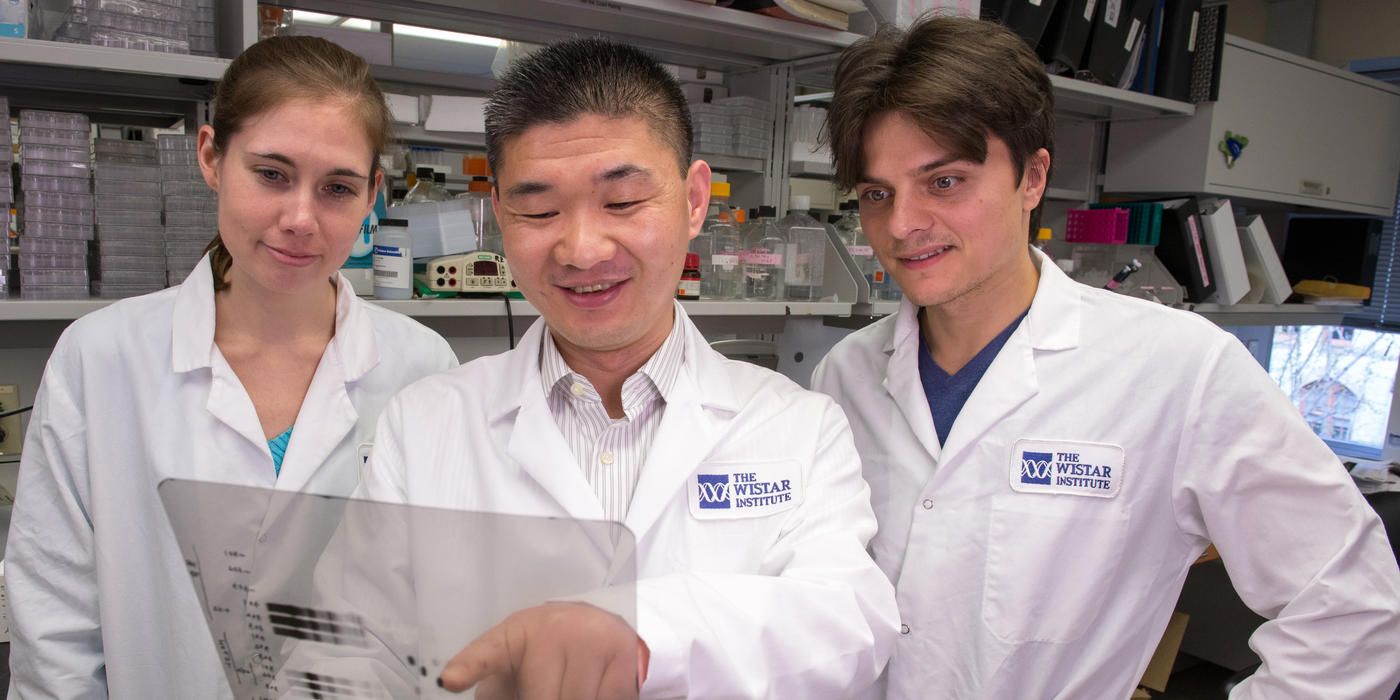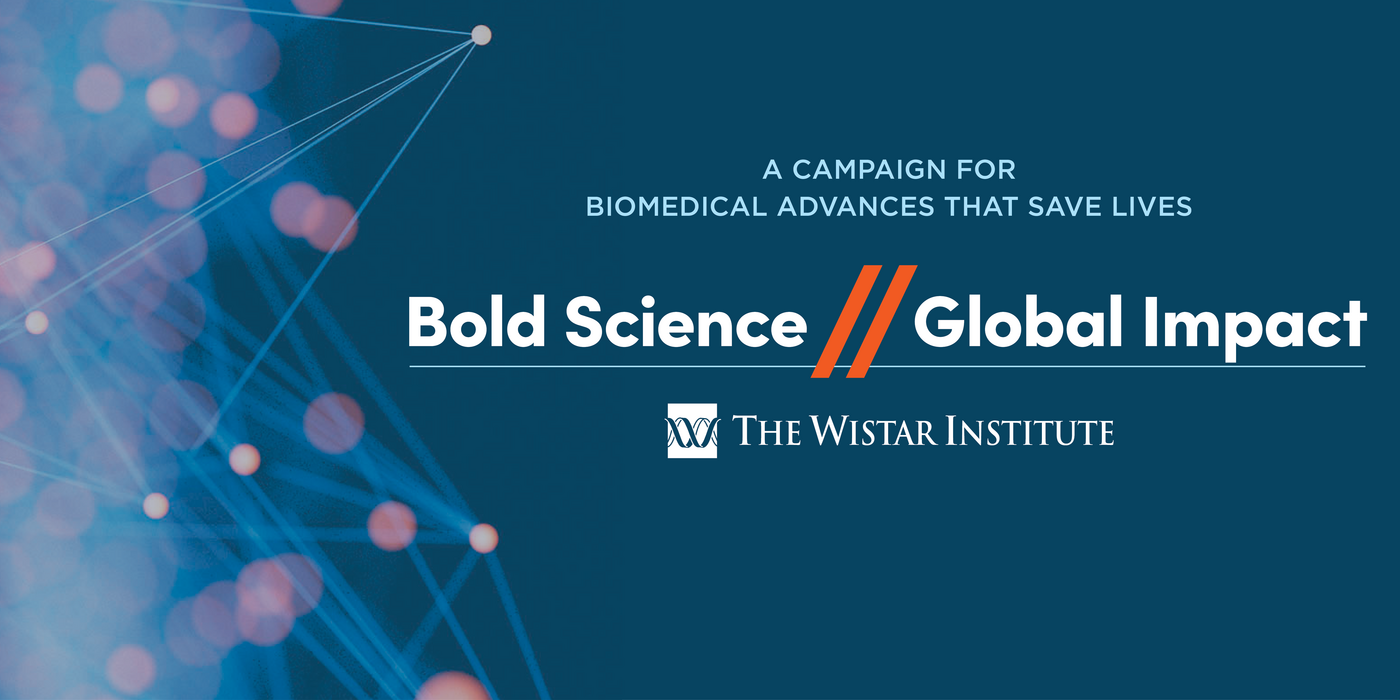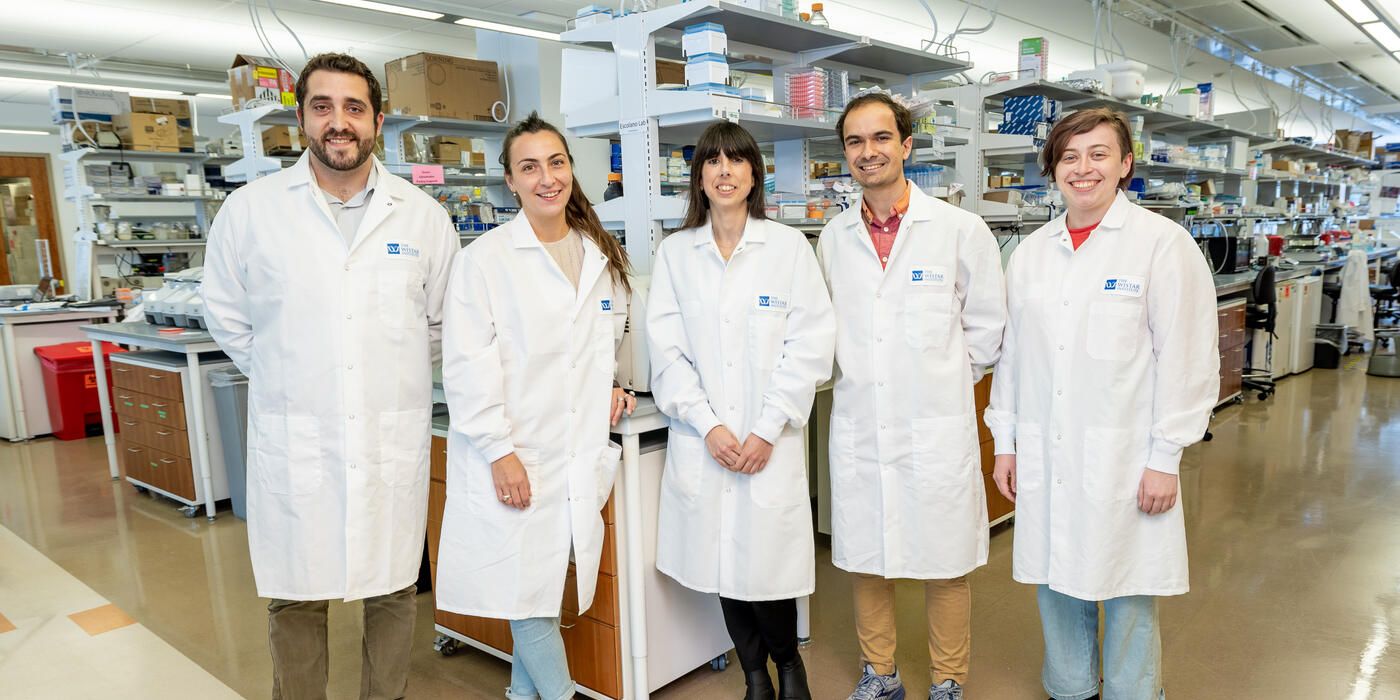Jonathan Lax Memorial Award Lecture Streams Globally
PHILADELPHIA—(June 23, 2022)—The Wistar Institute, a biomedical research leader in cancer, immunology, and infectious disease, announces that for the first time it will globally stream its 26th Annual Jonathan Lax Memorial Award Lecture, celebrating 26 years of providing state-of-research updates to the community, on Tuesday, June 28 from 9:30 to 11:00 a.m. EST. From across the globe, scientists, activists, advocates, and community leaders will come together online to share scientific strides and community progress on the global HIV cure agenda front.
Mike McCune, M.D., Ph.D., head of the HIV Frontiers Initiative and Biotechnology Accelerator Program of the Bill & Melinda Gates Foundation, will deliver the 26th Annual Jonathan Lax Memorial Award Lecture at this virtual, Wistar-hosted event. McCune’s lecture will highlight the ongoing efforts to reach an HIV cure that is accessible to every community across the world. This year’s global health theme will be echoed by guest speakers including Luis J. Montaner, D.V.M., D.Phil., Herbert Kean, M.D., Family Endowed Chair Professor, leader of the HIV Research Program at The Wistar Institute, and co-principal investigator of the BEAT-HIV Delaney Collaboratory; Moses “Supercharger” Nsubuga, HIV advocate-musician-radio host; Jane Shull, chief executive officer of Philadelphia FIGHT; and others.
“26 years ago, we set out to provide clinicians, advocates, and people living with HIV/AIDS in Philadelphia a state-of-research update by bringing the most important developments affecting HIV/AIDS treatment strategies or cure-directed efforts,” said Montaner. “This year we are pleased to grow our community beyond the region and country and gain a network across the Americas, Europe, Africa, and Asia. Our mission hasn’t changed, but we have grown into a global center for the most groundbreaking HIV cure research.”
“To move scientific innovation forward for all humanity, we need greater inclusion and participation in the research process and collaborations of all kinds—across people, partnerships, sectors, countries, and beyond. These are a hallmark of Dr. Montaner’s HIV research program,” said Dario C. Altieri, M.D., Wistar president and CEO, director of the Ellen and Ronald Caplan Cancer Center and Robert and Penny Fox Distinguished Professor. “That collaborative might is embodied in the BEAT-HIV Martin Delaney Collaboratory. True impact is felt through their ability to articulate HIV cure goals to communities on an international scale, thereby bringing greater awareness to the goals of HIV cure research on the worldwide stage.”
The 2022 lecture is free and open to a global audience. Register here.
The Jonathan Lax Memorial Award Lecture was established by The Wistar Institute and Philadelphia FIGHT after Mr. Lax’s death to honor his legacy by bringing distinguished speakers to a lay audience. Past speakers have included luminaries in the HIV/AIDS field such as Nobel Laureate Françoise Barré-Sinoussi, Ph.D., emeritus professor at the Institut Pasteur; David D. Ho, M.D., professor of microbiology and immunology at Columbia University; and Anthony S. Fauci, M.D., director of the National Institute of Allergy and Infectious Diseases.
The Lecture honors Jonathan Lax, President of the Board of Philadelphia FIGHT, who died from complications due to AIDS in 1996. A successful businessman, Mr. Lax was a leading advocate for bringing information directly to people living with HIV and their families. He devoted personal resources throughout his life to helping people learn how to make decisions that would affect their health care as a person living with HIV. In the pre-internet era, Mr. Lax helped FIGHT sponsor many public forums to assure that people living with HIV/AIDS had access to up-to-date information delivered by recognized specialists.
The 2022 Jonathan Lax Memorial Award Lecture global sponsors are: Canadian HIV Cure Enterprise (CANCure), EU2Cure, Federation of African Immunological Societies (FAIS), Global Gene Therapy Initiative (GGTI), HIV Cure Africa Acceleration Partnership (HCAAP), Indian Immunology Society (IIS), Jawaharlal Nehru Centre for Advanced Scientific Research (JNCASR), Joint Adherent Brothers and Sisters Against AIDS (JABASA), Penn CFAR, Philadelphia FIGHT, Philadelphia Foundation, Sociedad Argentina de Infectología (SADI), and The Wistar Institute.
Editor’s Note: All awardees will receive the Jonathan Lax Memorial Award virtually. For more information or to cover the event, contact Darien Sutton at 215-870-2048 or dsutton@wistar.org.
###
The Wistar Institute is an international leader in biomedical research with special expertise in cancer, immunology, infectious diseases, and vaccine development. Founded in 1892 as the first independent nonprofit biomedical research institute in the United States, Wistar has held the prestigious Cancer Center designation from the National Cancer Institute since 1972. The Institute works actively to ensure that research advances move from the laboratory to the clinic as quickly as possible. wistar.org
BEAT-HIV Delaney Collaboratory is part of an international consortium of more than 80 top HIV researchers from academia, industry, government, and nonprofit sectors working toward an HIV cure. The Collaboratory is leading three advanced trials to define effective ways to combine immunotherapy regimes towards a cure. BEAT-HIV.org
Philadelphia FIGHT is a Federally Qualified Health Center (FQHC) offering HIV treatment and primary care to people living with HIV/AIDS and those at high risk, as well as community education and outreach programs on HIV, Hepatitis, and other topics impacting public health. During the COVID-19 pandemic, FIGHT has provided no barrier, walk-up COVID testing to over 19,000 people in low-income neighborhoods of Philadelphia, and partnered with ten community based organizations to bring COVID vaccines to these communities.










